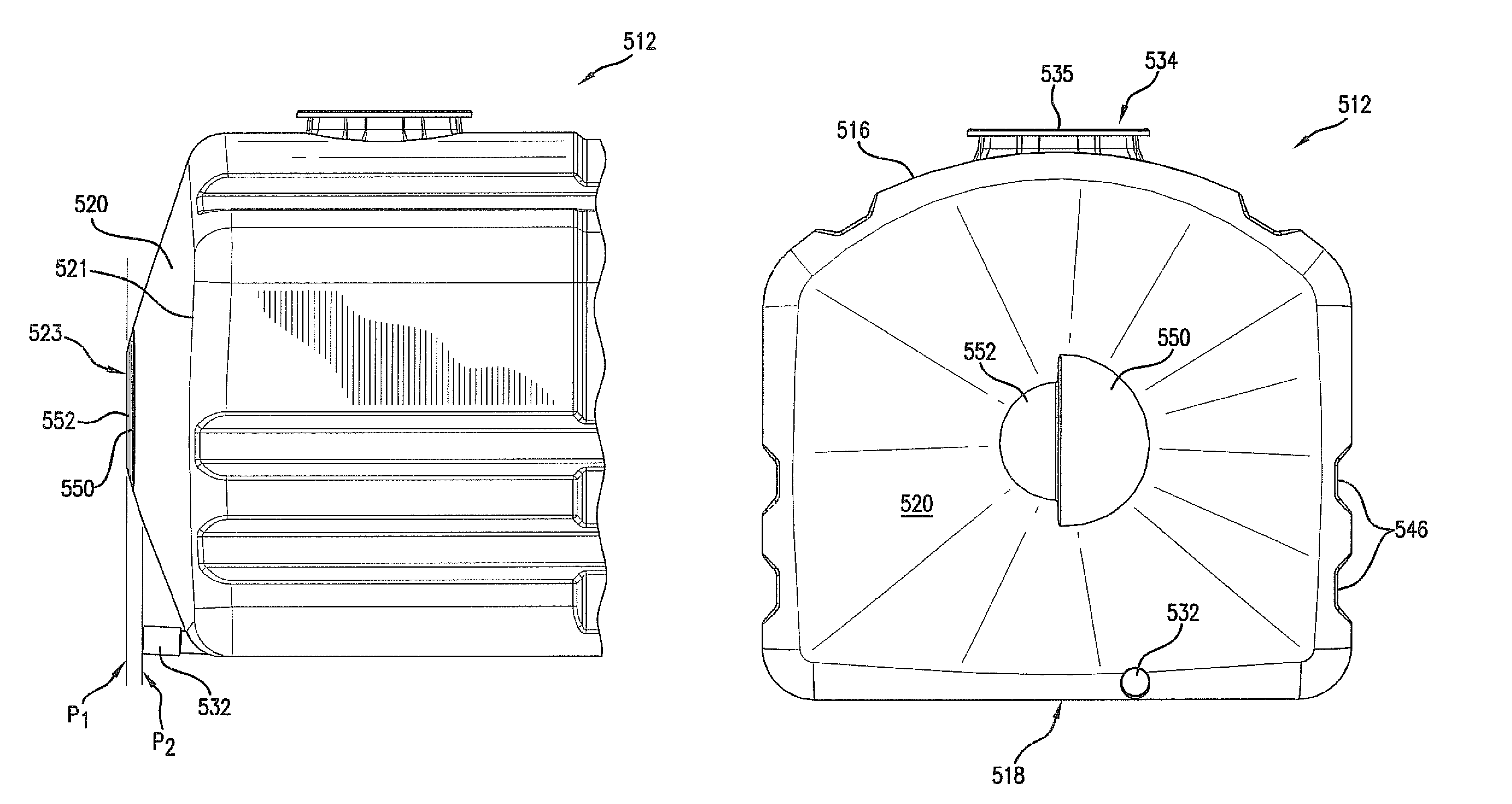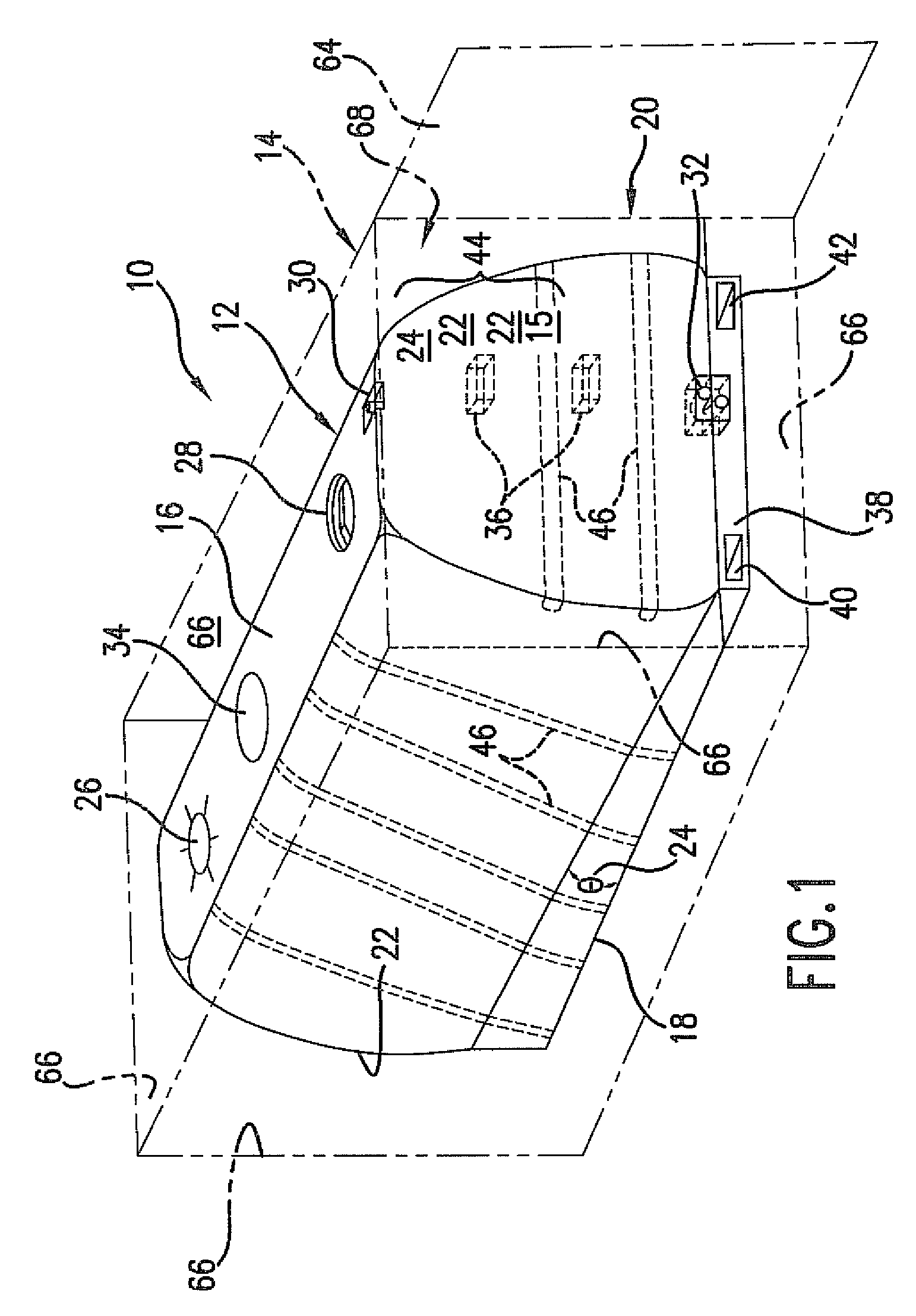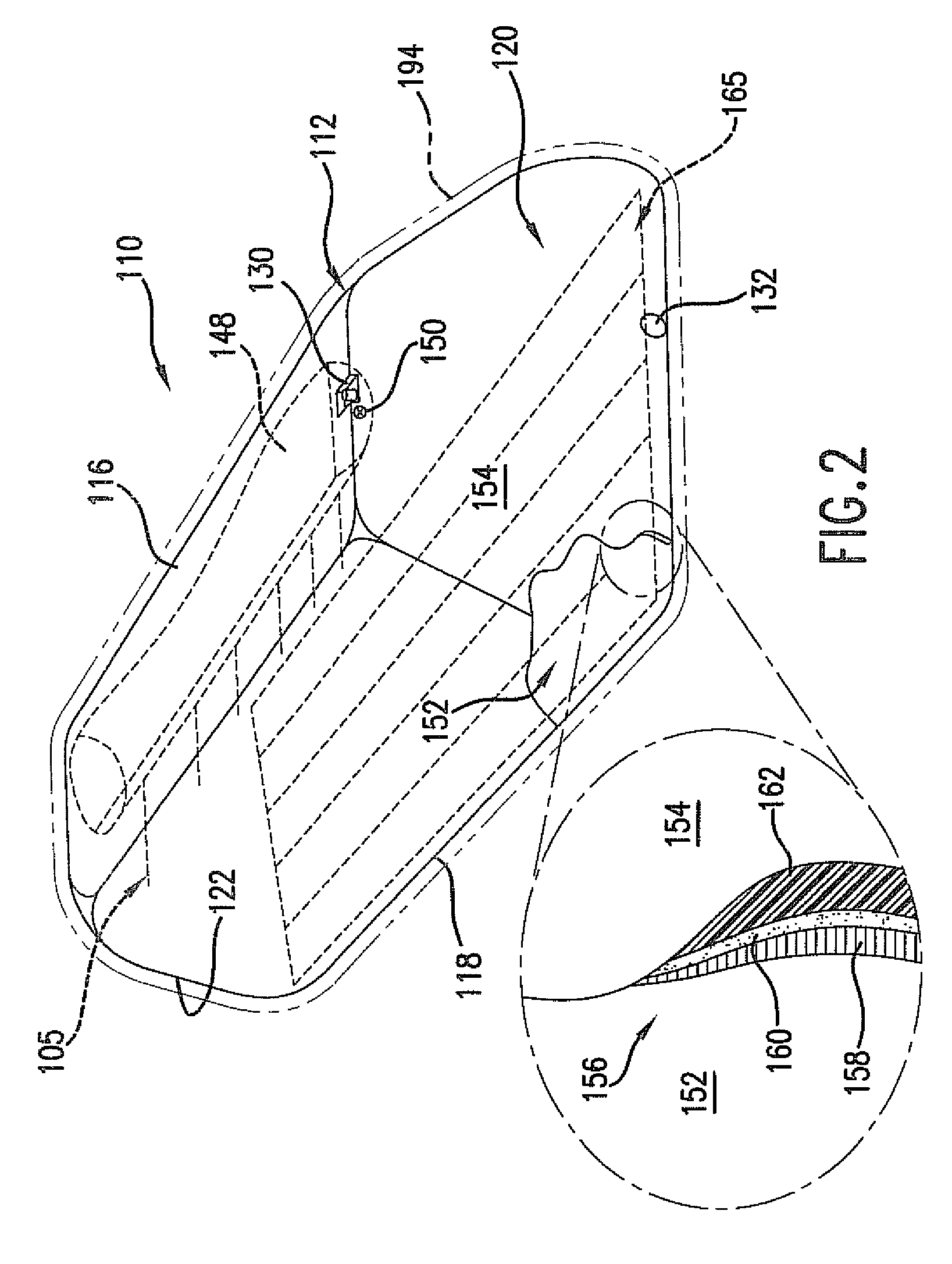Bulk liquid transport system
a liquid transportation system and liquid transportation technology, applied in the field of bulk cargo transportation tanks or containers, can solve the problems of inability to effectively employ these vehicles, low efficiency of conventional liquid transportation vehicles, and undesirable methods, and achieve the effect of simple manufacture, installation and us
- Summary
- Abstract
- Description
- Claims
- Application Information
AI Technical Summary
Benefits of technology
Problems solved by technology
Method used
Image
Examples
Embodiment Construction
[0089]Detailed reference will now be made to the drawings in which examples of the present disclosure are shown. The detailed description uses numerical and letter designations to refer to features of the drawings. Like or similar designations of the drawings and description have been used to refer to like or similar parts of the disclosure.
[0090]The drawings and written description provide a full and detailed description of examples of the disclosure, of the manner and process of making and using these examples, and of the best mode of carrying out the disclosure, so as to enable one skilled in the pertinent art to make and use the examples. The examples set forth in the drawings and detailed description are provided by way of explanation only and are not meant as limitations of the disclosure. The present disclosure thus includes any modifications and variations of the following examples as come within the scope of the appended claims and their equivalents.
[0091]The figures genera...
PUM
| Property | Measurement | Unit |
|---|---|---|
| angle | aaaaa | aaaaa |
| thickness | aaaaa | aaaaa |
| width | aaaaa | aaaaa |
Abstract
Description
Claims
Application Information
 Login to View More
Login to View More - R&D
- Intellectual Property
- Life Sciences
- Materials
- Tech Scout
- Unparalleled Data Quality
- Higher Quality Content
- 60% Fewer Hallucinations
Browse by: Latest US Patents, China's latest patents, Technical Efficacy Thesaurus, Application Domain, Technology Topic, Popular Technical Reports.
© 2025 PatSnap. All rights reserved.Legal|Privacy policy|Modern Slavery Act Transparency Statement|Sitemap|About US| Contact US: help@patsnap.com



